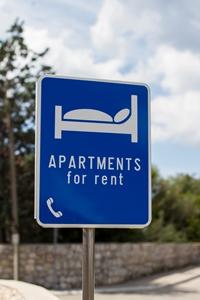
Paul Brewer
Published: December 22, 2016

Sabow v. American Seafoods Company, USDC W.D. Wa. Case No. C16-0111-JCC
Crewmember Rodwan Sabow suffered a back injury in February 2015 whilst working as a fish processor on-board an American Seafoods Company (ASC) vessel. Surgery was required and duly paid for by the employer, as was maintenance at the daily rate set out in his individual employment contract; this being US $30 a day. When a seaman is injured in the service of the vessel it is the vessel owner’s duty to pay the seaman maintenance compensation, for room and board, along with cure payments for medical treatment necessary to restore the seaman to health.
The crewmember contended this rate did not cover his room and board expenses and requested an increase to US $37.97 a day. Previously the case of Rowell v Tyson Seafood Grp, 1999 WL held that “A seaman’s right to a reasonable payment for maintenance is a legal right that cannot ordinarily be abrogated by contract.” However, the Ninth Circuit has held that a collective bargaining agreement limiting the amount of maintenance is enforceable albeit this generally does not extend to individual employment contracts, as was the case here.
The request for an increased sum was rejected and resulted in Sabow filing suit; in response to which ASC made an application for declaratory relief on the issues of Jones Act negligence and unseaworthiness. Sabow argued the application should be dismissed due to his right to have his maintenance claim heard separately and because of a seaman’s rights to choice-of-forum privilege. He had filed his maintenance and cure action in federal court but wanted to have the Jones Act and unseaworthiness counts heard in state court.
The first issue the court had to address was the standard of review to be applied to the pre-trial motion filed by ASC, with them asserting that the summary judgement standard should apply. The dilemma this placed before the court was that the summary judgment standard requires facts to be construed in a light most favourable to the non-moving party, in this case the ship-owner, whereas the Jones Act position requires all doubts to be resolved in favour of the seaman.
The Washington Supreme Court previously gave guidance on this issue holding that the summary judgment standard applies only to determine a seaman’s initial entitlement to maintenance and cure on the basis that this initial entitlement “presents legal questions that can properly be resolved on summary judgment,” but that “it does not necessarily follow that the summary judgment standard must be applied to a seaman’s motion to reinstate maintenance and cure.”
This judgement did not squarely address the facts in Sabow’s case where the issue was the rate payable as opposed to the entitlement. However, the court ruled the point to be moot on the basis that ASC had not shown any true dispute of fact such that would allow the court to rule in their favour.
This led to the court turning to the question of what a reasonable maintenance rate would be. Sabow argued that costs should be measured against the expense of lodging locally shoreside whereas ASC argued that the measure should be the cost of living aboard ship. It has been traditionally accepted that a seaman is entitled to food and board of equivalent quality to that which he or she would have received onboard the ship.
Recently courts have recognised that it is impractical to base the maintenance rate compared to conditions on the ship and in Hall v. Noble Drilling, (5th Cir. 2001) (Hall) Judge Robart held that when determining the proper rate of maintenance one should consider “what is reasonable in the seaman’s locale and not simply what would cover the literal equivalent of conditions aboard the ship.” The court agreed that this was the proper method to be used to calculate a reasonable rate.
Having reached this conclusion the issue then became how to calculate what the rate should be. In Barnes v Sea Hawaii Rafting (2014), the District of Hawaii cited the Fifth Circuit in applying a three-part test for determining the maintenance award:
“First, the court must estimate two amounts: the plaintiff seaman’s actual costs of food and lodging; and the reasonable cost of food and lodging for a single seaman in the locality of the plaintiff. In determining the reasonable costs of food and lodging, the court may consider evidence in the form of the seaman’s actual costs, evidence of reasonable costs in the locality or region, union contracts stipulating a rate of maintenance or per diem payments for shoreside food or lodging while in the service of a vessel, and maintenance rates awarded in other cases for seamen in the same region.
Second, the court must compare the seaman’s actual expenses to reasonable expenses. If actual expenses exceed reasonable expenses, the court should award reasonable expenses. Otherwise, the court should award actual expenses. Thus, the general rule is that seamen are entitled to maintenance in the amount of their actual expenses on food and lodging up to the reasonable amount for their locality.
Third, there is one exception to this rule that the court must consider. If the court concludes that the plaintiff's actual expenses were inadequate to provide him with reasonable food and lodging, the plaintiff is entitled to the amount that the court has determined is the reasonable cost of food and lodging.”
Based upon the judgement in Incandela v Am. Dredging Co (2nd Cir. 1981) Sabow adopted a different approach and put forward the position that he was only required to make an initial prima facie showing that his living expenses are reasonable following which the burden shifts to the vessel Owner to produce rebuttal evidence. Having considered the options the court was content to apply the burden-shifting test here.
Using this test Sabow was required to make a prima facie showing that his living expenses were reasonable. The crewmember provided evidence which demonstrated he was renting a one bedroom apartment at a cost of $800 a month. He further provided evidence that this cost was consistent with the average rental price for such a property in his area.
In Hall v. Noble Drilling (above) the judge said that “If a seaman rents a one-bedroom apartment for a reasonable amount, he is certainly entitled to reimbursement for all of his actual lodging expenses, since this is modest for even a single person.”
Sabow also supplied evidence of his monthly household expenses and food plan which was prima facie evidence that the request for a maintenance rate of $37.97 a day was reasonable.
Whilst ASC presented evidence to show that a rate of US $30 was acceptable such an argument missed the point which was that it was not for the employer to show that the offered rate was reasonable but rather that the amount claimed was unreasonable. Evidence of the availability of cheaper accommodation elsewhere was also deemed to be irrelevant on the basis that a crewmember need not find the cheapest accommodations but only needs to show that his accommodation was reasonable.
ASC further asserted that, because the crewmember was living with his wife and children, the amount of his rent should be prorated. However, the court ruled that such pro ration is not appropriate when a seaman shares his home with his family. The logic being that a seaman who pays for the rent or mortgage of a home he shares with his family actually spends out-of-pocket the entire amount. He cannot pay any less without losing his home. If a seaman would incur the lodging expenses of the home even if living alone, then the entire lodging expense represents the seaman's actual expenses.
Therefore, taking into account all of the above, the court found in favour of the crewmember and granted his motion for an increased rate of daily maintenance.
Having successfully prosecuted his claim the crewmember asked the court to award attorney fees on the basis that when a seaman is forced to take legal action to secure an entitlement to maintenance and cure then an award of attorney fees is appropriate if the vessel owner had no good reason for the failure to pay. The court denied this request on the basis that given the lack of clarity in the case law they could not say that ASC’s actions were without good cause.


